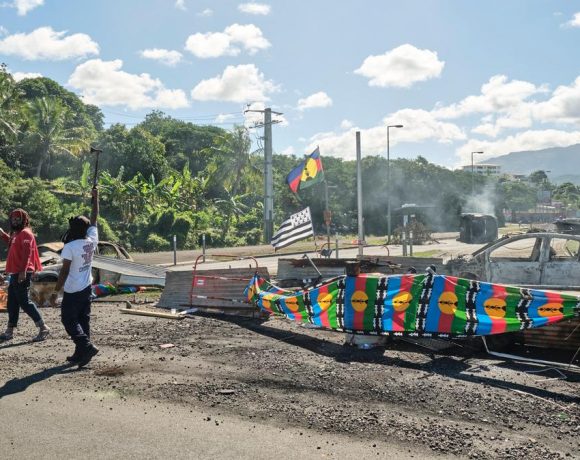
In France’s Pacific territory of New Caledonia, a French policeman has killed a protester, marking the seventh death in a week of violence ignited by contentious voting reforms. Prosecutor Yves Dupas in Nouméa, the capital, stated that the officer, currently in custody, fired his weapon after coming under attack from demonstrators on Friday. The deceased was a 48-year-old man. This incident follows a visit by French President Emmanuel Macron, who announced efforts to reach a new political agreement on the reforms.
The protests, led by the indigenous Kanak community who constitute 40% of the population, were sparked by planned voting reforms. Currently, only indigenous Kanaks and those who arrived from France before 1998 can vote. The proposed changes would allow more French residents, including those who have lived in New Caledonia for at least ten years, to vote. The Kanaks fear this could dilute their political power and hinder future independence referendums.
A manslaughter inquiry has been initiated, a standard procedure in France when a police officer kills someone. According to Dupas, the officer fired a shot from his service weapon during a physical altercation, with initial findings indicating the officers had facial injuries.
President Macron, during his one-day visit on Thursday, paused the reform but did not completely withdraw it, as demanded by pro-independence groups. He expressed a desire to reach a comprehensive political agreement on the territory’s future. In response to the unrest, thousands of additional police forces have been deployed to restore order.
Economic disparities are significant in New Caledonia, with the poverty rate among the indigenous Kanaks at 32.5%, compared to 9% among non-Kanaks, as per the 2019 census. France colonized New Caledonia in 1853 and made it an overseas territory in 1946, granting political rights to Kanaks under the 1998 Nouméa Accord. This accord also limited voting in provincial and assembly elections to pre-1998 residents. Since then, over 40,000 French nationals have moved to the territory.
Three independence referendums held between 2018 and 2021 showed narrow majorities for remaining part of France, with the third being boycotted by pro-independence groups due to the Covid pandemic. The recent violence has resulted in hundreds of millions of dollars in damage, leading Macron to state that the state of emergency would be lifted once protesters’ barricades were dismantled. He described the unrest as an “unprecedented insurrection movement.”
Currently, Nouméa airport is closed to commercial flights, with military flights evacuating around 300 Australian and 50 New Zealand tourists who reported arson, looting, and food shortages.
Picture Courtesy: Google/images are subject to copyright
